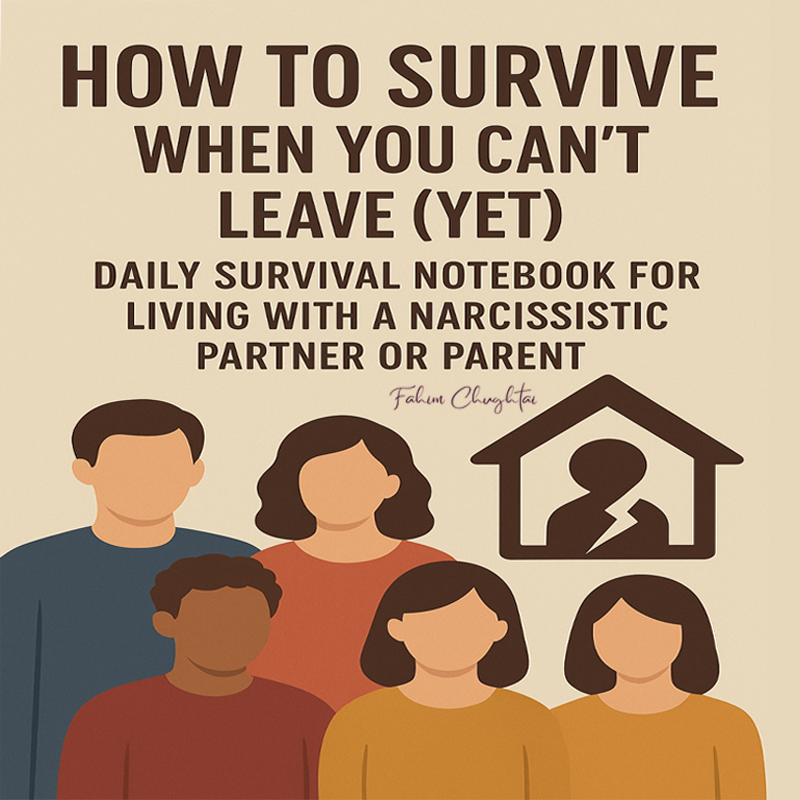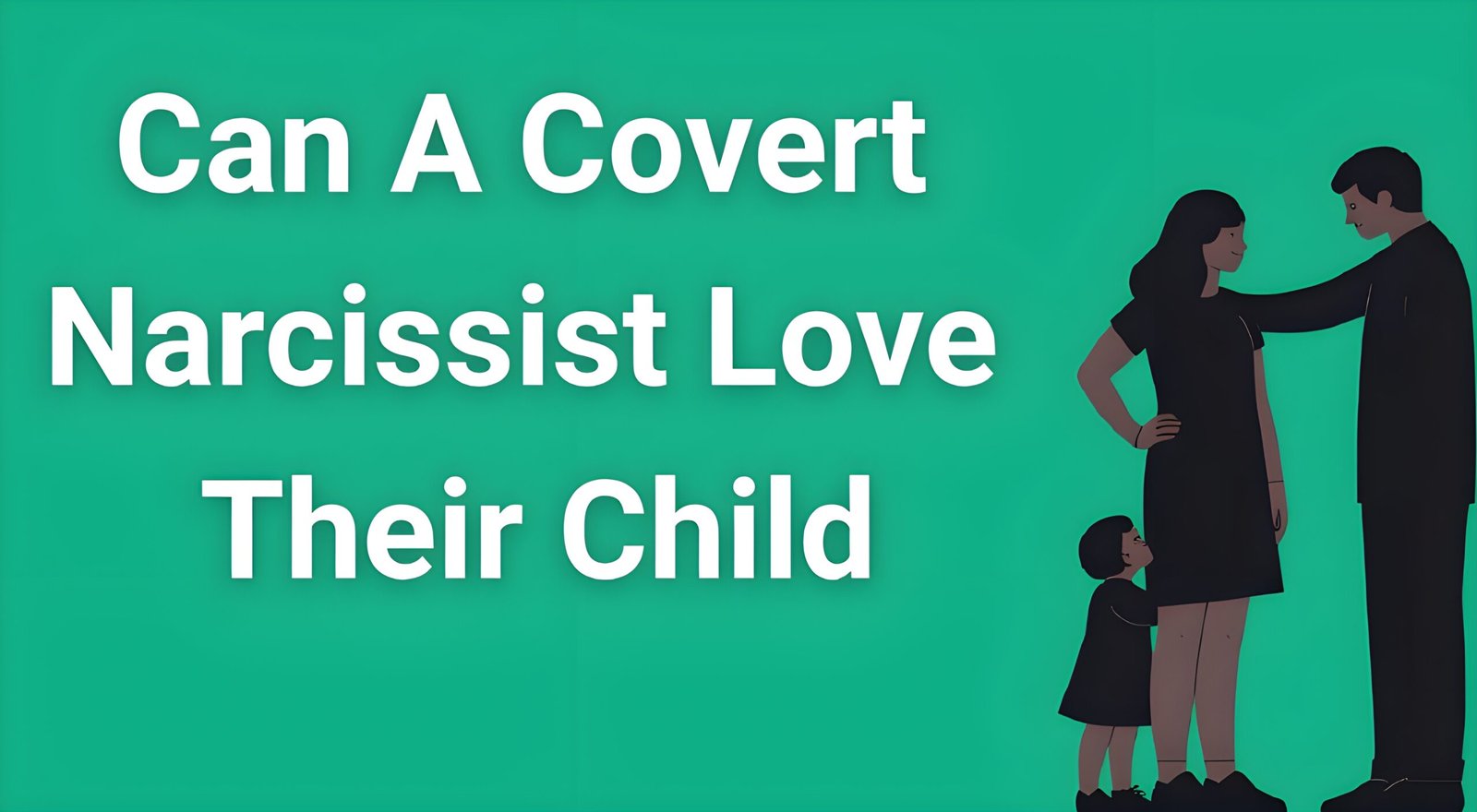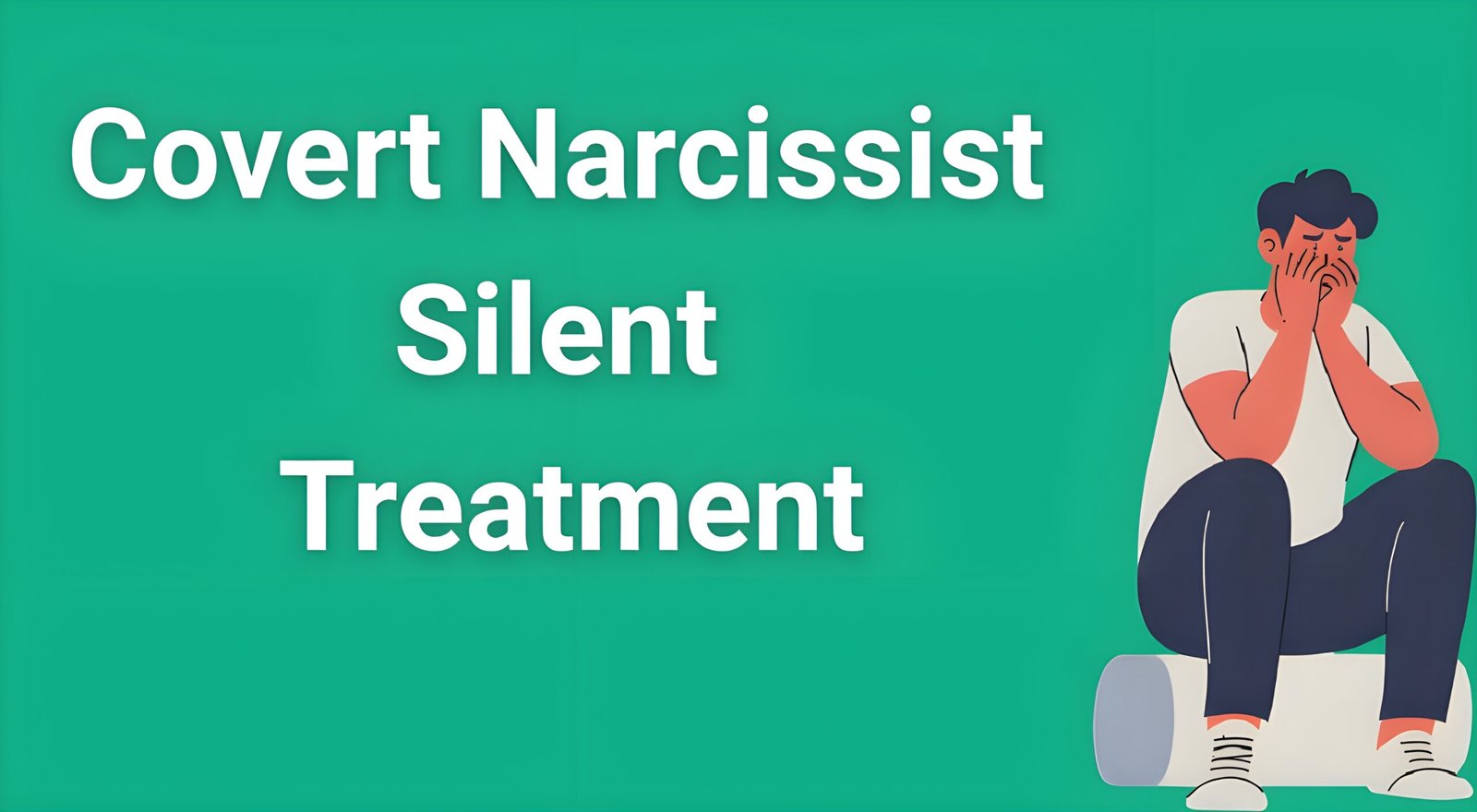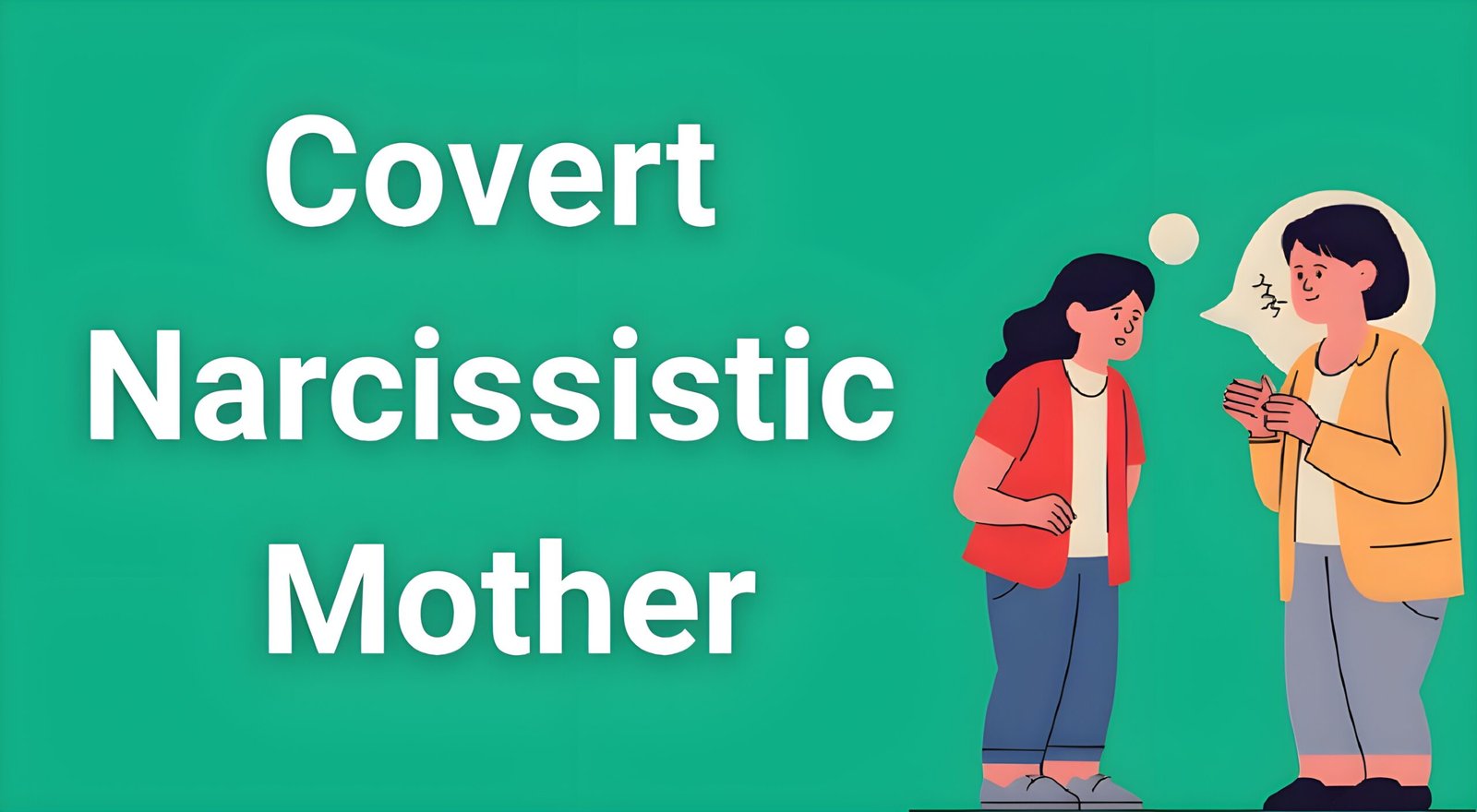If you’re reading this, you’re likely grappling with one of the most heart-wrenching questions a person can face: can a covert narcissist love their child? Whether you’re an adult trying to understand your own childhood or a co-parent questioning your ex’s relationship with your children, this question cuts to the very core of what it means to be human.
- What Makes Covert Narcissism Different from Overt Narcissism
- The Psychological Reality: Why Covert Narcissists Cannot Love Unconditionally
- How Covert Narcissistic “Love” Manifests in Parent-Child Relationships
- The Devastating Impact on Children
- Breaking Free from the Illusion: Recognizing the Truth
- Protecting Yourself and Your Children
- The Path to Healing: Reclaiming Your Worth
- Frequently Asked Questions
- Conclusion: Your Journey Forward
The painful reality is that while covert narcissists may claim to love their children—and may even believe they do—their version of “love” is fundamentally different from healthy, unconditional parental love. Understanding this distinction can be both liberating and devastating, but it’s essential for your healing and protection.
What Makes Covert Narcissism Different from Overt Narcissism
Before we dive into the question of whether a covert narcissist can love their child, it’s crucial to understand what sets covert narcissism apart from its more obvious counterpart.
Overt narcissists are relatively easy to spot. They’re grandiose, demanding, openly arrogant, and constantly seeking admiration. Their self-centeredness is on full display for everyone to see.
Am I Dealing With a Covert Narcissist — or Just Toxic Behavior?
Covert narcissists, however, are master manipulators who hide behind a facade of humility, victimhood, and apparent selflessness. They present themselves as loving, devoted parents while engaging in subtle forms of psychological manipulation and emotional abuse that are incredibly difficult to detect and even harder to prove.
This is why questioning whether a covert narcissist parent truly loves you feels so confusing. Their abuse is wrapped in the language of love, making it nearly impossible to trust your own perceptions.
The Covert Narcissist’s False Self
Covert narcissistic parents excel at creating an image of being the “perfect” parent—devoted, sacrificing, and endlessly loving. They may volunteer at school, appear deeply invested in their child’s activities, and receive praise from other parents and teachers for their dedication.
But behind closed doors, the reality is starkly different. The covert narcissist sees their child not as an individual with their own needs, wants, and identity, but as an extension of themselves—a source of narcissistic supply and a way to maintain their carefully crafted public image.
The Psychological Reality: Why Covert Narcissists Cannot Love Unconditionally
To understand whether a covert narcissist can love their child, we need to examine what genuine love actually requires and why narcissistic personality traits make this impossible.
What Real Parental Love Looks Like
Authentic parental love is characterized by:
- Unconditional acceptance of the child as a separate individual
- Empathy and the ability to understand the child’s emotional needs
- Selflessness that puts the child’s wellbeing above the parent’s ego
- Consistency in emotional availability and support
- Respect for the child’s boundaries and autonomy
- Accountability when the parent makes mistakes
Why Covert Narcissists Fall Short
Covert narcissists struggle with fundamental deficits that make genuine love impossible:
Lack of Empathy: While they may appear empathetic, covert narcissists have severely impaired emotional empathy. They cannot truly feel what their child is experiencing or understand their emotional needs from the child’s perspective.
Conditional Love: A covert narcissist’s “love” is always transactional. It’s based on what the child can provide—good behavior, academic success, social status, or emotional caretaking for the parent.
Emotional Immaturity: Covert narcissists are stuck in an emotional developmental stage equivalent to a toddler. They expect their child to meet their emotional needs rather than the other way around.
Identity Fusion: They see their child as an extension of themselves rather than a separate individual with their own thoughts, feelings, and needs.
How Covert Narcissistic “Love” Manifests in Parent-Child Relationships
Understanding how a covert narcissist’s version of “love” plays out in real family dynamics can help you recognize patterns you may have experienced or witnessed.
The Golden Child vs. Scapegoat Dynamic
Covert narcissistic parents often assign roles to their children:
The Golden Child receives conditional “love” and praise when they:
- Excel academically or socially in ways that reflect well on the parent
- Provide emotional support and validation to the narcissistic parent
- Never challenge the parent’s authority or narrative
- Serve as a source of narcissistic supply
The Scapegoat Child becomes the target for:
- The parent’s projected shame and insecurities
- Blame for family problems and dysfunction
- Criticism and emotional manipulation
- Punishment for any perceived “failures” or independence
These roles can shift without warning, leaving children constantly anxious and confused about where they stand.
Love-Bombing and Devaluation Cycles
Covert narcissistic parents engage in cycles that mirror abusive romantic relationships:
Love-Bombing Phase: Overwhelming the child with attention, praise, gifts, and apparent devotion, especially when:
- The child achieves something that makes the parent look good
- The parent needs emotional validation or support
- There’s been a period of distance or conflict that threatens the parent’s image
Devaluation Phase: Subtle criticism, withdrawal of affection, passive-aggressive behavior, and emotional unavailability when:
- The child demonstrates independence or autonomy
- The child’s needs conflict with the parent’s wants
- The child questions the parent’s behavior or narrative
- The parent feels threatened by the child’s success or happiness
Parentification and Role Reversal
One of the most damaging aspects of covert narcissistic “love” is the expectation that the child will meet the parent’s emotional needs. This might look like:
- Expecting the child to be their confidant and emotional support system
- Sharing inappropriate information about adult problems, relationships, or finances
- Relying on the child to regulate their emotions and mood
- Making the child feel responsible for the parent’s happiness and wellbeing
- Guilt-tripping the child when they try to establish normal boundaries
The Devastating Impact on Children
Growing up with a covert narcissistic parent who claims to love you while engaging in these harmful patterns creates profound and lasting damage.
Psychological Effects
Children of covert narcissists often develop:
Complex Trauma (C-PTSD): The result of ongoing emotional abuse and neglect disguised as love
Anxiety and Depression: From constantly walking on eggshells and never feeling truly safe or accepted
Identity Confusion: Not knowing who they really are outside of their parent’s expectations and projections
Emotional Dysregulation: Difficulty managing their own emotions due to being expected to manage their parent’s
Perfectionism and People-Pleasing: Desperate attempts to earn the love they never truly received
Relationship Difficulties: Struggle to form healthy attachments due to their template for “love” being manipulation and control
The Adult Child’s Dilemma
Adults who grew up with covert narcissistic parents often find themselves trapped in a particularly painful dilemma. They may:
- Continue to crave their parent’s approval and validation
- Feel guilty for questioning their parent’s love
- Struggle to set boundaries because the parent appears so “loving” to others
- Experience trauma bonds that make it difficult to reduce contact
- Question their own perceptions and memories due to ongoing gaslighting
If you’re struggling with the addictive nature of seeking validation from a narcissistic parent, understanding trauma bonds can be life-changing. The cycle of intermittent reinforcement creates neurological patterns similar to addiction, making it incredibly difficult to break free through willpower alone.
Breaking Free from the Illusion: Recognizing the Truth
Coming to terms with the reality that your covert narcissistic parent cannot love you in the way you needed and deserved is one of the most difficult but necessary steps in your healing journey.
Signs You May Be Dealing with Narcissistic “Love”
Ask yourself these questions about your relationship with your parent:
- Do you feel like you’re constantly walking on eggshells around them?
- Does their “love” feel conditional on your behavior, achievements, or compliance?
- Do you find yourself managing their emotions more than they attend to yours?
- Do they guilt-trip you when you try to set boundaries or live your own life?
- Do you feel confused about whether their treatment of you is actually loving?
- Do other people see them as a wonderful parent while you feel differently in private?
If you answered yes to several of these questions, you may be dealing with covert narcissistic abuse disguised as love.
The Grief of Accepting Reality
Accepting that your parent cannot truly love you as you deserve is a profound loss that requires grieving:
The Loss of the Love That Never Was: Mourning the unconditional parental love you never received
The Loss of the Love That Never Will Be: Accepting that your parent cannot change and give you what you need
The Loss of the Illusion: Grieving the fantasy of the loving parent you believed you had
This grief is necessary and healthy, though it can feel overwhelming. It’s the first step toward building a life based on truth rather than false hope.
Getting Professional Support
If you’re questioning whether your experiences constitute narcissistic abuse, getting an expert perspective can provide the clarity you desperately need. Sometimes having a professional analyze your specific situation can help you understand exactly what you’re dealing with and validate your experiences.
Professional assessment can help you:
- Understand the specific type and severity of narcissistic abuse you’ve experienced
- Recognize manipulation tactics you may not have identified
- Develop a personalized strategy for protection and healing
- Stop questioning your own sanity and perceptions
Protecting Yourself and Your Children
If you’re co-parenting with a covert narcissist or are an adult child still in contact with a covert narcissistic parent, protecting yourself and any children involved becomes crucial.
Setting Boundaries That Actually Work
Traditional boundary-setting advice often fails with covert narcissists because they’re masters at appearing reasonable while systematically violating limits. Effective boundaries with covert narcissists require:
Gray Rock Method: Becoming as uninteresting as possible to avoid giving them narcissistic supply
Information Diet: Severely limiting what personal information you share about your life, feelings, or plans
Documented Communication: Keeping records of interactions, especially if children are involved
Professional Support: Having a therapist who understands narcissistic abuse to help you navigate complex situations
Protecting Children from Covert Narcissistic Grandparents
If you’re a parent trying to protect your children from a covert narcissistic grandparent, this creates unique challenges:
- The grandparent may appear wonderful to outsiders and even to your children initially
- Courts and family members may not understand why you’re limiting contact
- Your children may not understand why you’re “being mean” to their seemingly loving grandparent
- You may face pressure from your spouse or other family members to allow unrestricted access
Remember that protecting your children’s emotional wellbeing is more important than maintaining family harmony or appearances.
When You Can’t Leave Yet
If you’re an adult child still living with or financially dependent on a covert narcissistic parent, you may feel trapped. In these situations, survival strategies become essential:
Emotional Detachment: Learning to not take their behavior personally or seek their validation
Building External Support: Developing relationships and support systems outside the family
Planning Your Exit: Working toward financial and emotional independence
Self-Care Practices: Maintaining your mental health while in a toxic environment
Reality Testing: Keeping a journal to combat gaslighting and trust your own perceptions
For those in situations where leaving immediately isn’t possible, having a structured survival plan can make the difference between thriving and merely surviving until you can safely establish independence.
The Path to Healing: Reclaiming Your Worth
Understanding that a covert narcissist cannot truly love their child is devastating but also liberating. It means that the problem was never with you—you were always worthy of love. The deficit was in your parent’s capacity to give it.
Rebuilding Your Sense of Self
Healing from covert narcissistic abuse involves:
Still Living With Them? You’re Not Helpless.

Developing Self-Compassion: Learning to treat yourself with the kindness you never received
Identifying Your Authentic Self: Discovering who you are outside of your parent’s expectations and projections
Processing Trauma: Working through the complex emotions and experiences of your childhood
Building Healthy Relationships: Learning what genuine love and respect look like in relationships
Setting New Patterns: Breaking generational cycles of dysfunction
Breaking the Trauma Bond
One of the most challenging aspects of healing from covert narcissistic abuse is breaking the trauma bond—the addictive cycle of seeking validation from someone who hurt you.
Trauma bonds form through intermittent reinforcement, where periods of cruelty are followed by moments of apparent love and attention. This creates a powerful psychological addiction that’s incredibly difficult to break through willpower alone.
You’ve Seen the Patterns. Now Break the Bond.
Breaking free requires understanding the neurological basis of trauma bonds and implementing specific strategies to rewire your brain’s response patterns. This isn’t about being “strong enough” to walk away—it’s about understanding the science behind why leaving feels impossible and using targeted techniques to overcome it.
Frequently Asked Questions
Can a covert narcissist change and learn to love their child properly?
While personality change is theoretically possible, it’s extremely rare for narcissists to develop the self-awareness and empathy required for genuine love. The nature of narcissistic personality disorder makes individuals resistant to recognizing their own harmful behaviors, and they typically see themselves as victims rather than perpetrators.
How can I tell if my parent’s love is genuine or narcissistic?
Genuine parental love is consistent, unconditional, and focused on your wellbeing and happiness. Narcissistic “love” is conditional, manipulative, and ultimately serves the parent’s emotional needs rather than the child’s. If you feel like you have to earn love through performance or behavior, or if the “love” comes with guilt, manipulation, or emotional strings attached, it’s likely narcissistic.
Is it possible to have a relationship with a covert narcissistic parent?
Many people choose to maintain limited contact with narcissistic parents, especially if they have realistic expectations and strong boundaries. However, this requires accepting that the relationship will never be what you hoped for and focusing on protecting your own emotional wellbeing rather than trying to change or please your parent.
Will my covert narcissistic parent ever acknowledge the harm they caused?
Unfortunately, genuine acknowledgment of harm requires empathy and accountability that most narcissists lack. They’re more likely to deny, minimize, or blame you for any problems in the relationship. Waiting for acknowledgment often keeps people stuck in cycles of hope and disappointment.
How do I explain to others why I limit contact with my “loving” parent?
This is one of the most challenging aspects of dealing with covert narcissistic abuse. Because the abuse is subtle and the parent often has a good public image, others may not understand your decision. You don’t owe anyone an explanation, but having a simple response ready can help: “Our relationship is complicated, and I’ve had to set boundaries for my own wellbeing.”
Conclusion: Your Journey Forward
The question “can a covert narcissist love their child” doesn’t have a simple answer because it depends on how we define love. If love means providing basic care, saying loving words, and appearing devoted, then yes, many covert narcissists believe they love their children and present that image to the world.
But if love means seeing your child as a separate individual, accepting them unconditionally, prioritizing their emotional wellbeing, and providing consistent emotional safety and support—then no, a covert narcissist cannot truly love their child in this way.
This doesn’t make you unlovable or broken. It means you deserved better than what you received, and now you have the opportunity to give yourself the love, respect, and validation you always needed.
Your healing journey may be challenging, but it’s also an act of courage and self-love. By facing these difficult truths, you’re breaking cycles that may have existed in your family for generations and creating the possibility for genuine, healthy love in your own life and relationships.
Remember: You were always worthy of real love. The failure was never yours—it was in their capacity to give what you deserved. Now you get to write a new story based on truth, healing, and your inherent worth as a human being.
If you’re struggling to break free from the confusion and emotional chaos of a narcissistic relationship, you’re not alone. Recovery is possible, but it often requires specialized support and understanding of the unique psychological dynamics at play.






